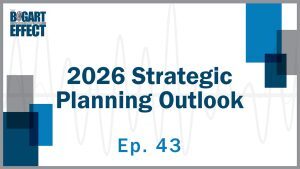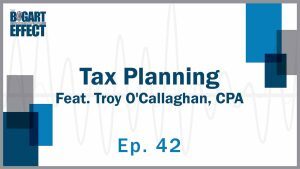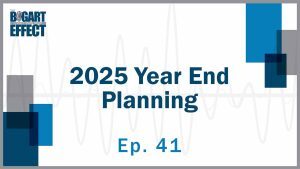Putting money away for retirement is vital so you don’t have to continue working at an advanced age. These funds allow you to leave your career and live out your remaining years in peace and, ideally, provide you with enough income to continue your current lifestyle.
You’ll find many financial products to use in retirement, so figuring out how they work is essential before you begin saving. Your employer might contribute to some of these plans, while you’ll be on your own for other options.
Comparing a pension vs retirement account can help ensure you’ll have income when you stop working. This guide explains the various financial products available and their differences.
Key Takeaways
- Pensions provide guaranteed income: Defined benefit pension plans offer predetermined monthly payouts based on your years of service and salary, providing financial certainty in retirement.
- 401(k)s and IRAs offer more control: You decide contribution amounts and investment choices, but returns depend on market performance with no guaranteed income.
- Employer funding varies significantly: Pension contributions come entirely from employers, while 401(k)s may include employer matching, and IRAs are self-funded.
- Access restrictions apply to all accounts: Most retirement accounts restrict access until age 59.5, with early withdrawal penalties of 10% plus taxes on earnings.
- Risk and return trade-offs differ: Pensions and annuities offer lower risk with guaranteed payouts, while 401(k)s and IRAs provide unlimited growth potential but market risk.
- Tax advantages exist across all options: Most retirement accounts offer tax deferrals or tax-free growth, though the timing of tax benefits varies by account type.
- Diversification is recommended: Using multiple retirement account types can provide both guaranteed income and growth potential for a well-rounded retirement strategy.
What Is a Pension Plan?
A pension plan is a retirement account your employer will fund and sponsor. The two types of pension plans are defined contribution and defined benefit. Your employer will contribute to your pension account while you work for the company.
A defined contribution plan doesn’t promise specific benefits at retirement but guarantees your employer will contribute to an investment account. The money you’ll have available for your retirement depends on market performance.
A defined benefit plan is a traditional pension that ensures you receive a predetermined payout every month when you reach retirement age and decide to stop working. The amount you’ll receive each month is typically based on the number of years you have worked for the organization and your salary.
Other Types of Retirement Accounts
Pension plans aren’t the only options to help you save for retirement, as you can use other methods to protect and grow your money. Your employer could have involvement in these accounts, but many financial products require you to take retirement planning into your own hands. Some examples of retirement accounts include:
Annuities
A retirement annuity is an insurance product that guarantees a specific retirement income. It’s possible to fund an annuity with a lump sum or smaller contributions over time, and you can fund the account with after-tax income so you won’t pay tax when you start receiving payments. Annuities don’t have contribution limits, but you’ll pay fees each year.
401(k)s
A 401(k) is an investment account your employer might partially sponsor. It doesn’t offer guaranteed monthly income, as the amount you’ll receive depends on market performance, but it has unlimited growth potential. The main benefit of a 401(k) is that you have the option to defer the tax using a traditional 401(k) or receive tax-free earnings in retirement with a Roth 401(k).
IRAs
An IRA is a retirement plan you’ll fund yourself without employer involvement. A traditional IRA provides an immediate tax deduction, but you’ll pay tax on your retirement income. A Roth IRA is funded with after-tax income, so you won’t pay tax on the earnings.
Developing a robust understanding of how retirement accounts work can help as you compare an annuity vs pension and other financial products. Learning about these saving methods makes it easier to grasp how you’ll pay for things in your golden years.
Five Differences Between Pensions and Other Retirement Accounts
The pension vs retirement account argument could confuse you because they sound similar. There are some differences, though, that make these financial products easier to understand. Some ways these items differ include the following:
1. Access to the Money
You generally can’t access pension money until you retire because the accounts are non-liquid. It’s possible to receive an early payout on a 401(k), annuity, or IRA, but you must pay a 10% fee to access the cash before you’re 59.5 years old. You’ll also have to pay tax on any earnings your Roth IRA or Roth 401(k) accumulates.
2. Return on Investment
The return you’ll receive on your investment varies significantly between financial products. Defined benefit pension plans and retirement annuities are typically low risk because of the guaranteed payouts and, therefore, won’t provide much of a return. Your IRA or 401(k) return depends on your risk tolerance and investment performance.
3. Control Over Contributions
Your employer will fund your pension plan, so you have no control over the contributions. You can contribute to your annuities, 401(k)s, and IRAs, though, giving you more control over the amount you put away for retirement. Annuities don’t have annual limits, but you can only contribute $22,500 to a 401(k) and $6,500 to an IRA each year.
4. Monthly Guarantees
Defined benefit pension plans and many annuities offer guaranteed monthly payouts to provide financial certainty in retirement. You won’t find those guarantees with your IRA or 401(k) because market fluctuations determine how much your account holds. Planning for retirement becomes more challenging in this scenario, although you’ll have a better idea of how much income to expect as you get closer to the date.
5. Employer Contributions
Your pension plan contributions will come entirely from your employer while you work for the company. Things get a little tricky with your 401(k) because your employer can match your contributions, but that’s something you’ll have to negotiate as a term of your employment. You’ll be on your own when investing in annuities and IRAs.
Creating multiple retirement accounts is possible to ensure you have enough money put away for your later years. Diversifying your retirement portfolio also provides you with guaranteed income and the potential for significant gains from your investment accounts.
The Retirement Advice You Need
You don’t want to end up struggling in retirement, so developing a strategy as early as possible is recommended. Estimating how much you’ll have in your employer-sponsored accounts is only part of the battle, as investing in an IRA, annuity, or 401(k) is also recommended during your money-making years. Getting solid advice from trusted sources makes this process much more manageable.
Bogart Wealth offers retirement planning solutions in Houston, Texas, and Northern Virginia. We can answer all your retirement questions and help you develop a plan that provides peace of mind as you get closer to ending your employment. Contact Bogart Wealth for a thorough annuity vs pension comparison or to learn more about creating long-term retirement goals.
Frequently Asked Questions About Pensions and Retirement Plans
What's the difference between a pension and a retirement plan?
A pension is a type of retirement plan where employers contribute and guarantee a certain payout upon retirement. On the other hand, a retirement plan like a 401(k) is typically employee-funded, though employers may also contribute.
What are the benefits of having a pension?
The main benefit of a pension is its predictability. It provides a defined benefit at retirement, which can provide financial security. Additionally, it’s mainly funded by the employer, reducing the financial burden on the employee.
Is 401k a Pension or Retirement Plan?
A 401(k) is a type of retirement plan, not a pension. While both are designed to provide income in retirement, they operate differently.
A 401(k) is a defined-contribution plan where employees contribute a portion of their wages, often with an employer match. The ultimate benefit depends on the performance of the investments chosen by the employee. Unlike a pension, there’s no guaranteed payout in a 401(k) plan.
What are the benefits of having a retirement plan?
Retirement plans like 401(k)s offer more control to the employees as they decide how much to contribute and how to invest their funds. They also often include employer-matching contributions, which can amplify savings.
Accordion How do I know which one is right for me, a pension or retirement option?
What are the tax implications of each?
Both pensions and 401(k)s have tax advantages. Contributions to these plans are typically pre-tax, reducing your taxable income. However, withdrawals during retirement are usually taxed as regular income.
What are the investment options with each?
Pension plans are managed by the employer or a professional manager chosen by the employer, so employees have little to no say in how funds are invested. In contrast, with a 401(k), employees can choose from a variety of investment options provided by the plan.



